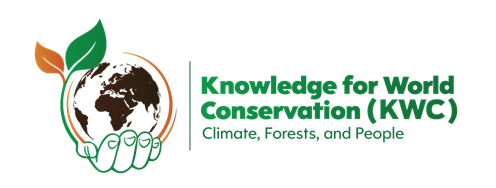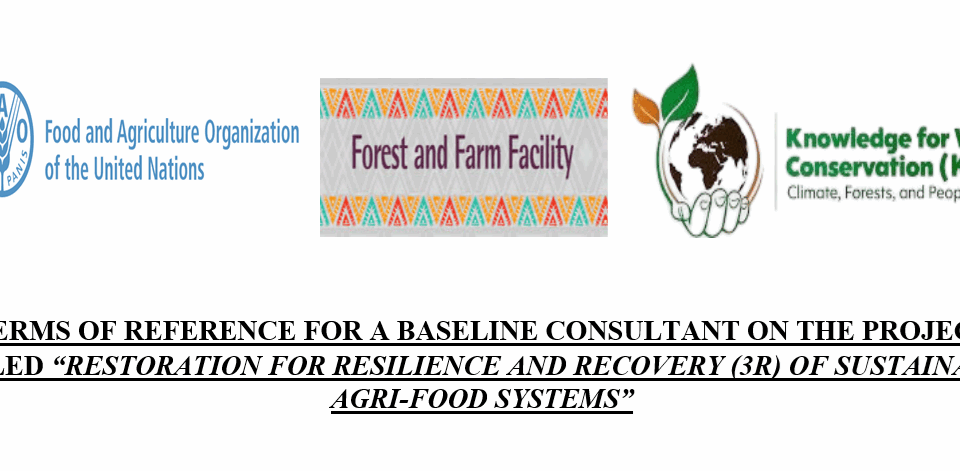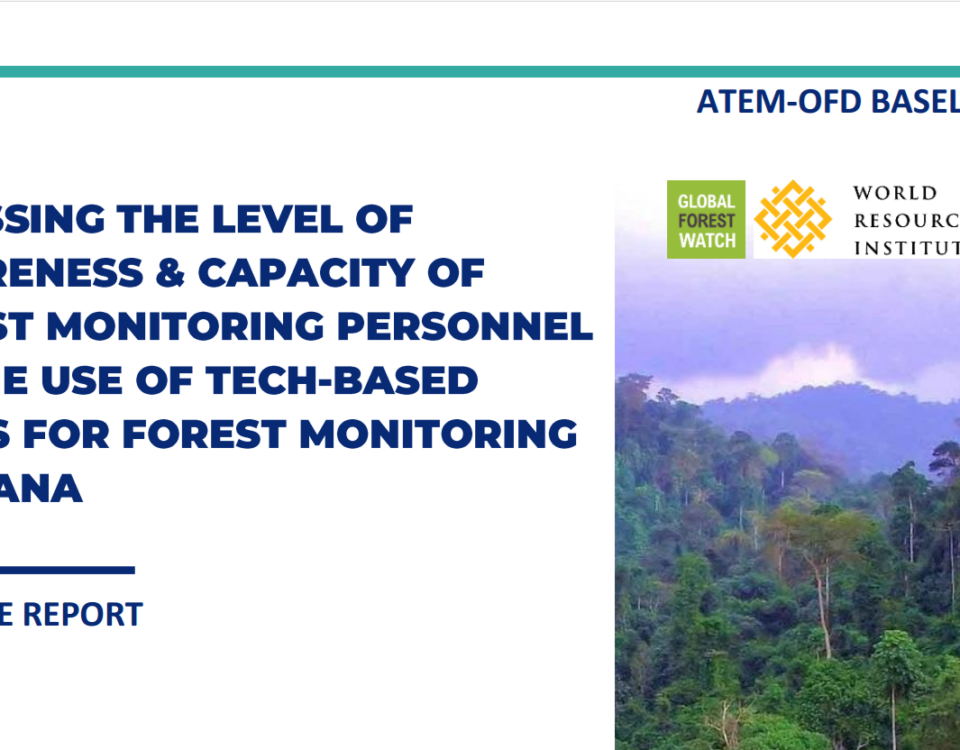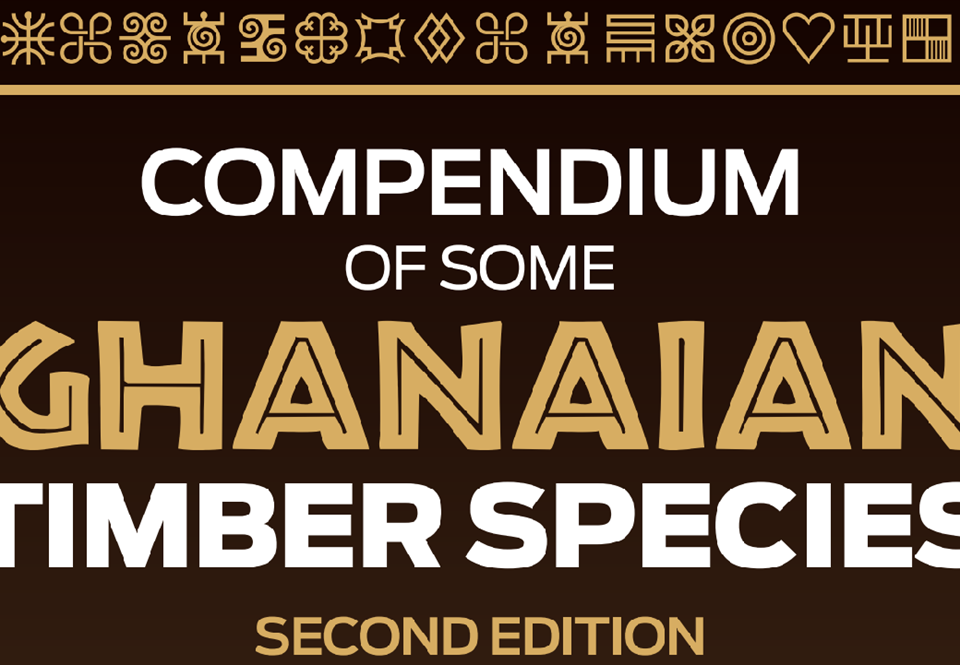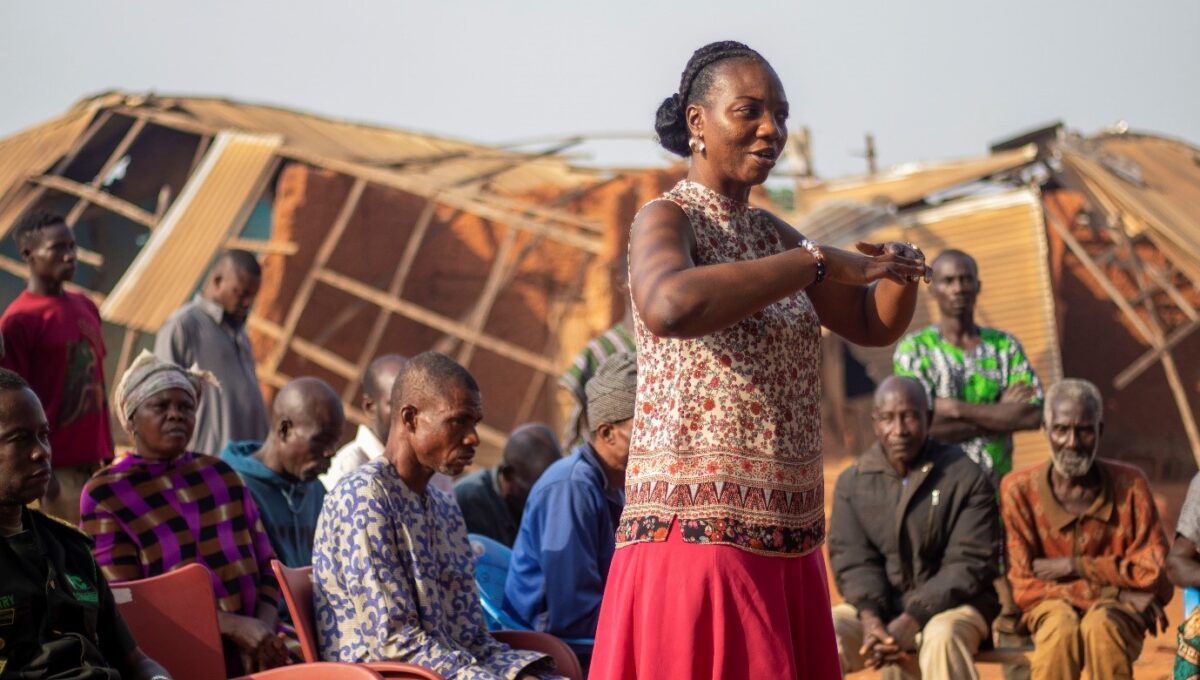
Offinso, Ghana – The Knowledge for World Conservation (KWC), in collaboration with the Offinso Forest District and key stakeholders, has successfully organized a series of Community Sensitization Durbars in Derma, Anhwerekrom, Mpaepamu, and Ankonum. These engagements, held under the “Application of Technology to Enhance Monitoring of the Forest in the Offinso Forest District of Ghana” (ATEM-OFD) project, emphasized inclusive forest monitoring, conservation, and sustainable management practices
The initiative aimed to bridge the gap between forestry officials, traditional authorities, farmers, youth, and local communities, reinforcing the Collaborative Forest Management (CFM) approach. This model promotes active community involvement in forest protection and decision-making, ensuring conservation efforts are socially inclusive and economically beneficial.
During the durbars, Mrs. Betty Boante-Abeyie, Senior Project Officer at KWC, delivered an insightful presentation on ecosystem services, stressing the importance of sustainable forest management. Forestry officials also educated participants on the Social Responsibility Agreement (SRA), highlighting how local communities benefit from timber resources, including developmental projects such as schools, roads, and healthcare facilities.
A key highlight of the discussions was the urgent need for collaborative fire prevention measures. The Forest Range Manager explained the key elements required for fire outbreaks and advised farmers to exercise caution when using fire near forest reserves. Community members also raised concerns about cattle encroachment, wildfires caused by hunting activities, and the need for logistical support for fire volunteer squads. In response, forestry officials pledged to escalate these issues to relevant authorities for appropriate interventions.
At Anhwerekrom, Mrs. Gifty Twum, Assistant District Manager for the Asufu Range, led a discussion on the benefits of community-forestry collaboration. Participants acknowledged the economic and ecological importance of forests and agreed that sustainable forest management requires proactive monitoring and reporting of illegal activities.
Additionally, concerns regarding land access for farming and timber benefit distribution were raised. Forestry Commission representatives explained that land had been allocated to private afforestation developers and advised communities to formally engage authorities on financial allocations related to planted timber.
The durbars concluded with a renewed commitment from all stakeholders to strengthen partnerships for forest conservation, address pressing challenges, and promote sustainable resource use for long-term community benefits.
